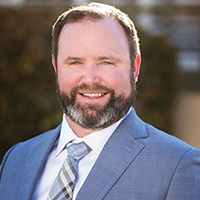Hope Misdemeanor Lawyer, New Mexico
Not enough matches for Hope Misdemeanor lawyer.
Below are all Hope Criminal lawyers.
Luke W. Ragsdale
✓ VERIFIEDMedical Malpractice, Criminal, Mass Torts, Personal Injury, Wrongful Death
Luke was born and raised in Roswell, New Mexico. After graduating from Goddard High School he attended McMurry University in Abilene, Texas. At McMurr... (more)
Lauren Elizabeth Anne Truitt
✓ VERIFIEDCriminal
Lauren E. A. Truitt completed her undergraduate degree at Texas State University in 2006, obtained her juris doctor (JD) from Oklahoma City University... (more)
Daniel C. Banks
Traffic, Deportation, Criminal, Bankruptcy, Power of Attorney
Status: In Good Standing



